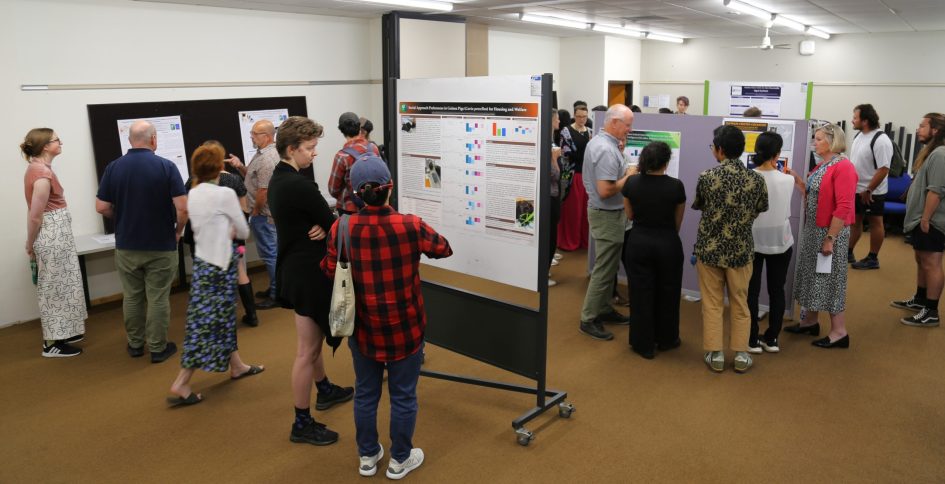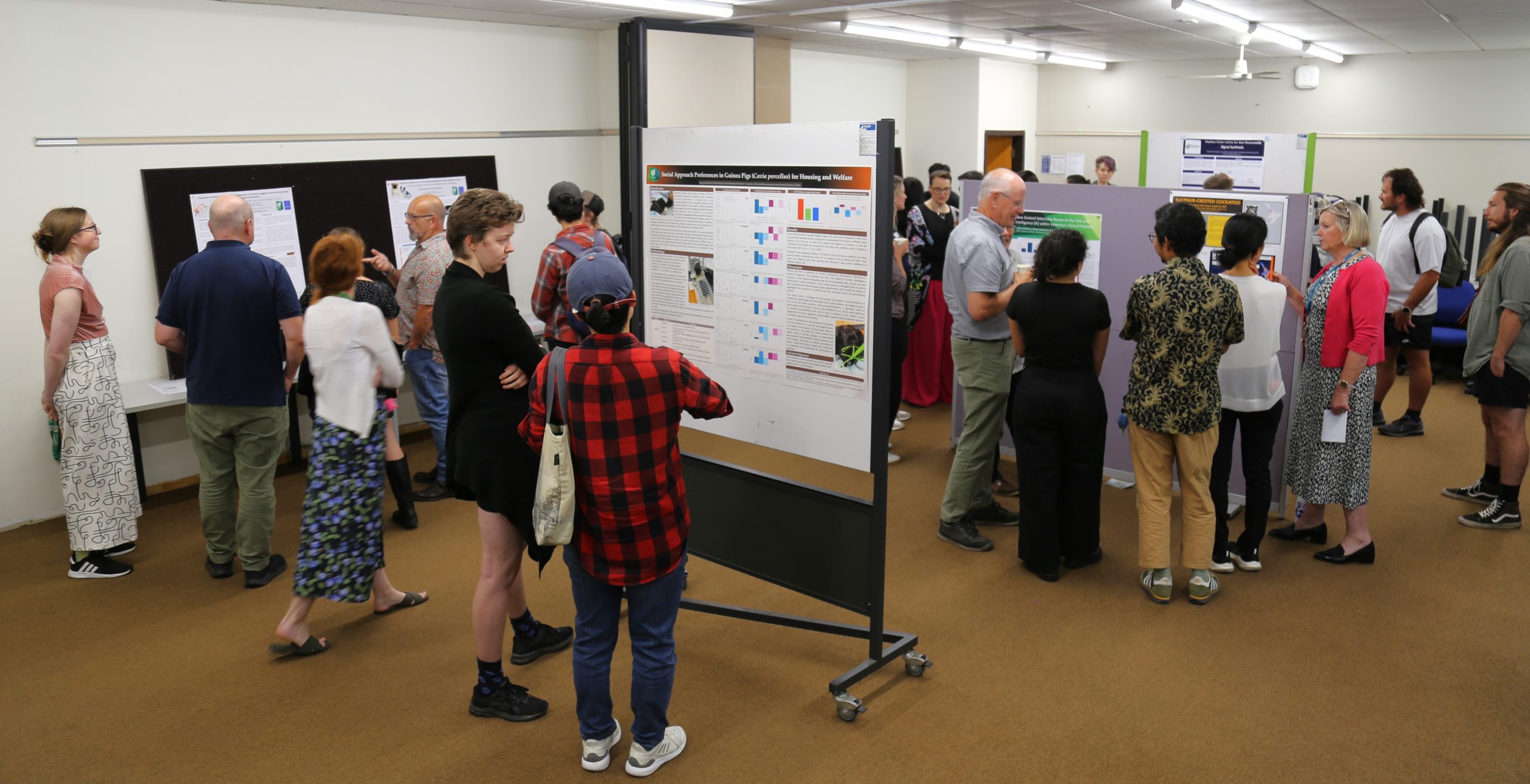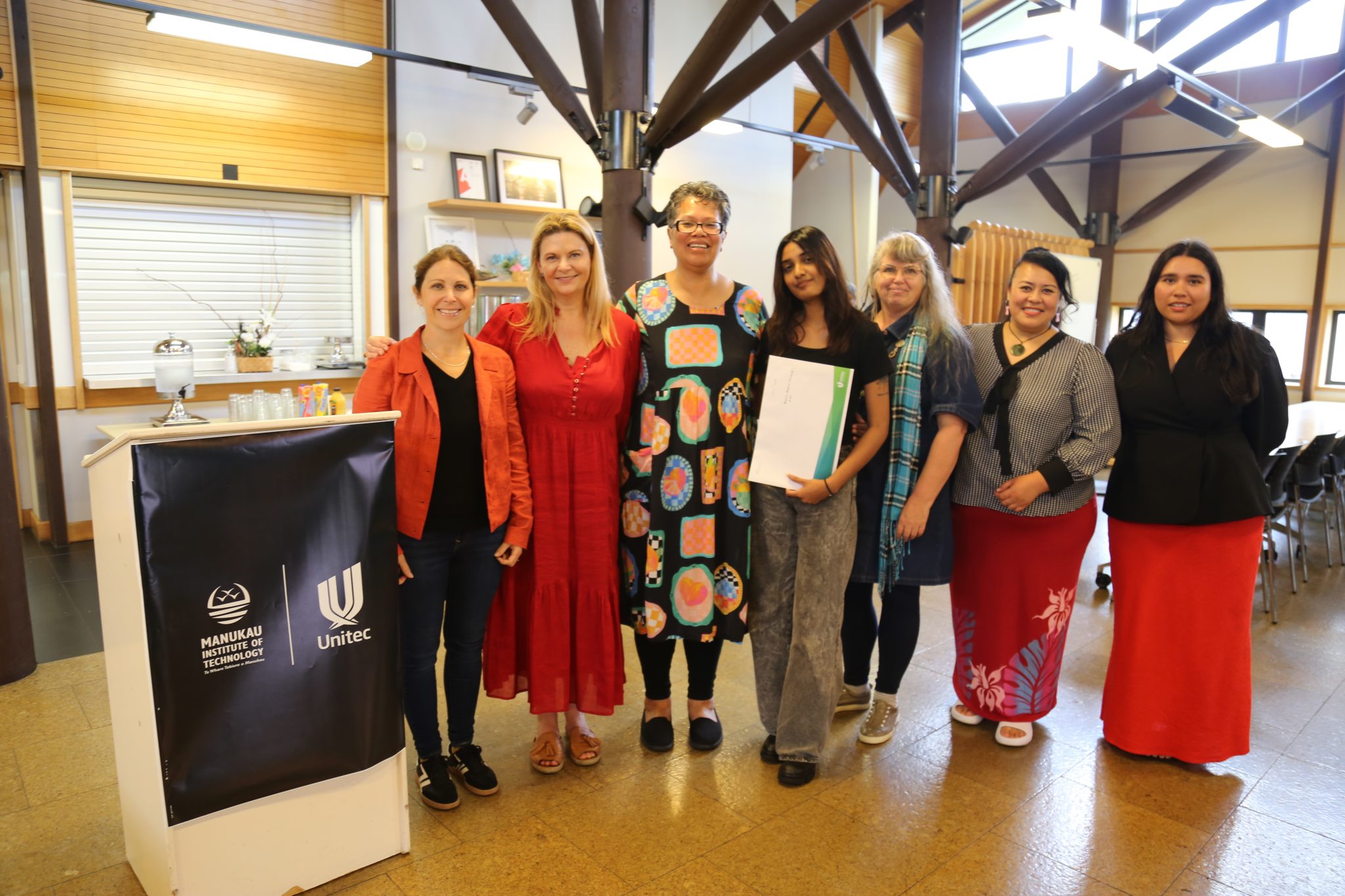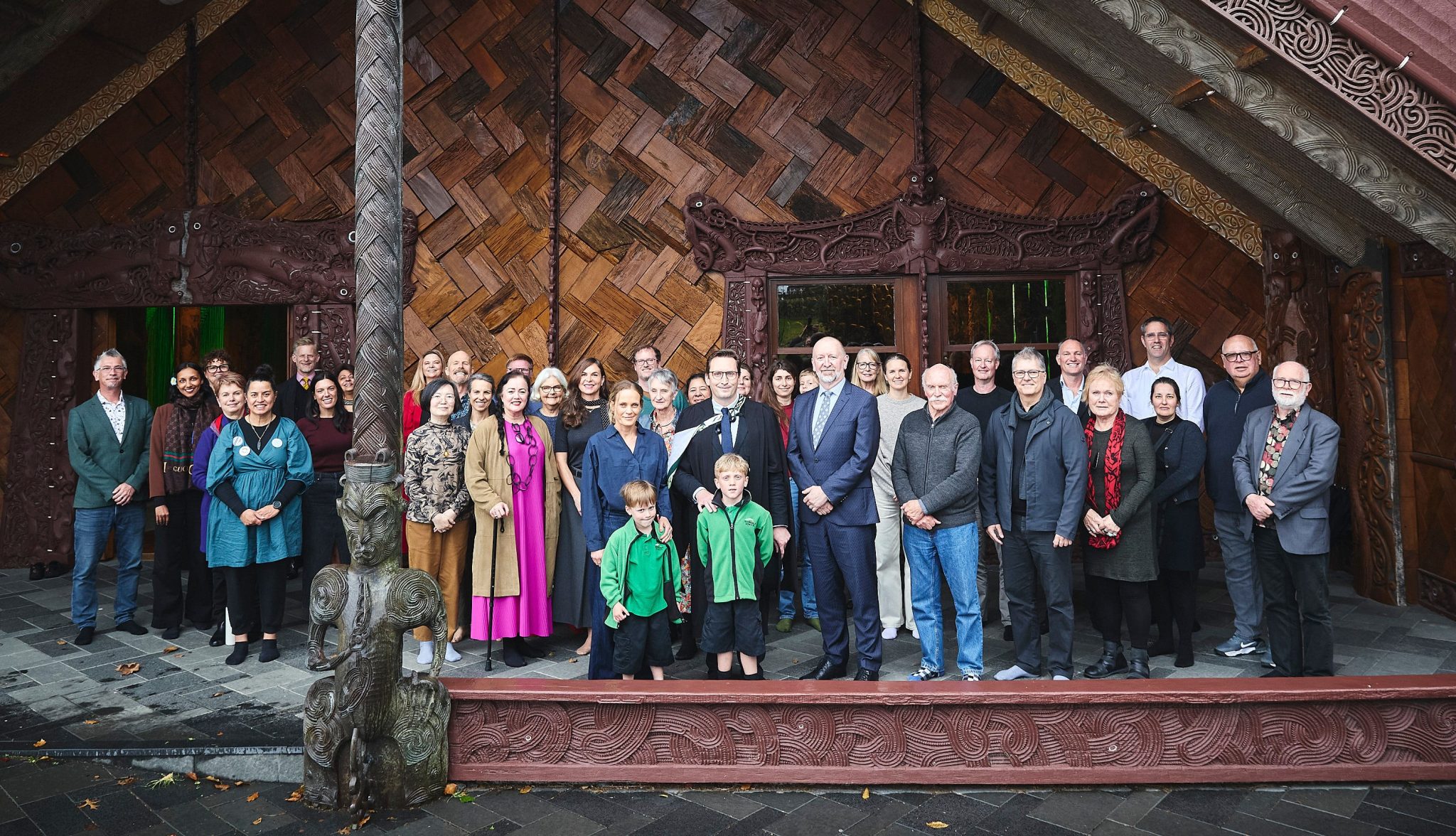School of Environmental and Animal Sciences (EAS) brought together researchers, ākonga, and industry partners for its third annual Research Symposium held in B115 on Thursday.
Head of School, Associate Professor Laura Harvey, described the symposium as “a celebration of curiosity, collaboration, and the incredible work being done to understand and protect the natural world and the animals we share it with.”

Now firmly established as a highlight on the school’s calendar, the symposium has grown each year since its inception in 2023.
The 2025 programme featured plenary talks, staff and student research presentations, industry networking sessions, and poster displays covering a wide range of topics—from environmental conservation and biodiversity to veterinary nursing, animal health, and human behaviour change in environmental contexts.
It drew a diverse mix of participants, including undergraduate and postgraduate students, early-career researchers, and established academics, alongside ākonga from AUT, University of Waikato, and University of Auckland.
The symposium also featured presentations from Auckland Zoo and Auckland Council, which reflected the school’s strong commitment to collaboration with industry stakeholders.

This year’s keynote speaker Dr Sarah Killick, Principal Biosecurity Advisor at Auckland Council and a Bachelor of Applied Science graduate, shared insights into the challenges and rewards of biosecurity work.
Dr Killick reflected on her journey from student to industry leader, underscoring the value of research partnerships and real-world learning opportunities.
“It’s wonderful to see our graduates returning as industry leaders and collaborators,” says Assoc. Prof. Harvey.
“Having several undergraduate students present alongside their lecturers and industry partners is something we’re incredibly proud of—they held their own and represented Unitec with confidence and professionalism.”
Assoc. Prof. Harvey noted that the symposium captures what makes EAS unique—its culture of inquiry, inclusiveness, and collaboration across disciplines.
“Whether your work focuses on ecology, conservation, veterinary nursing, animal behaviour, taxonomy, or genetics, today is about sharing ideas and building bridges. Every voice—student, researcher, or industry partner—adds to the richness of our scientific community.”

For ākonga, the benefits were many: the networking opportunities through building connections with researchers and industry professionals, the visibility and recognition gained from presenting research, receiving constructive feedback, and engaging with thought-provoking ideas that spark new directions.
Assoc. Prof. Harvey extended her thanks to Caralyn Kemp and the organising team, session chairs, and all presenters for their dedication also acknowledging the continued support of Tuapapa Rangahau – the Unitec Research Office, whose partnership helps sustain the school’s vibrant research culture.






Leave a Reply